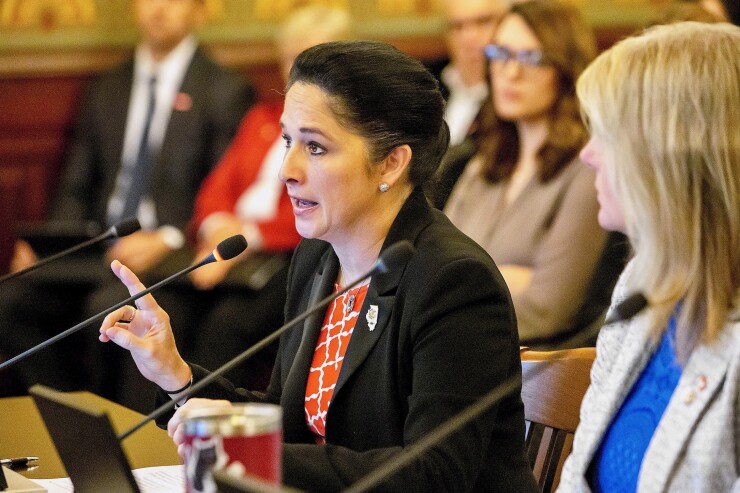Chicago City Council to tackle controversial bonds, CPS drama
4 min read

When Chicago’s City Council meets on Wednesday, it will decide whether to sell controversial refunding bonds and deal with Friday’s resignation of the entire seven-member Chicago Public Schools board.
According to
Mendoza urged City Council members to ask to see the administration’s math on the $90 million in savings and to demand an explanation for how exactly the $1.5 billion will be spent.
“Is there a dedicated revenue stream to pay back the bonds beyond sales taxes and the general revenue fund? If so, what is it?” Mendoza asked in the op-ed. “The better solution to ensure they protect taxpayers from taking on too much debt would be to introduce a substitute ordinance that deals only with the cost-saving refinancing component.”
On Tuesday, Chicago’s Chief Financial Officer Jill Jaworski responded in
In a credit recommendation released Tuesday, Municipal Market Analytics said the planned refinancing “highlights the city’s diminished financial flexibility within the current and upcoming budget cycles.”
“Depending on how the refunding is structured — i.e., just how far current principal payments are delayed — this sale could be another signal that the city’s decade-long uptrend in credit quality has come to an end,” MMA said, adding if the city cannot find new revenues, make meaningful spending cuts or secure help from the state, “Chicago’s credit profile and perhaps ratings may have begun to shift downward.”
The bonds did not come up at Johnson’s Monday
“The fact that things are moving and shifting, it means I am doing exactly what I was elected to do,” Johnson said at the press conference. “I’m confident that these new candidates will work to lead CPS into the world-class school system that our children deserve. This group is the first step of more nominations that will ensure a smooth transition into a hybrid board.”
The new candidates are Olga Bautista, Michilla Blaise, Mary Gardner, Debby Pope, Rev. Mitchell Johnson and Frank Niles Thomas.
The mayor said he sent his children to Chicago Public Schools and “the status quo, the past mistakes that have left our students behind — we’re not doing that.”

Bloomberg News
Johnson linked today’s “so-called experts” on fiscal responsibility to opponents of emancipation pre-Civil War.
“Now you have detractors making the same argument of the Confederacy when it comes to public education in this [city],” he said. “The vision of the status quo is to leave our students behind, fire teachers. … You can actually have a school district that doesn’t embrace … austerity.”
“The city leaders have long resisted investing in our children,” he added, calling for an embrace of the arts, the trades and sports as well as educational fundamentals. “I was elected to fight, and fight I am.”
Deputy Mayor for Education, Youth and Human Services Jen Johnson thanked previous board members, but noted, “the work is not done … The impending expansion to a 21-member hybrid board in January requires a transition. Bringing on new board members now ensures that that process begins.”
A
“Taking out a $300 million, high-interest payday loan is not a smart decision when CPS is already facing a massive deficit and the city an almost $1 billion deficit,” the letter reads. “CEO Pedro Martinez and the members of the school board … understood the reality of that situation by passing a budget that did not include this loan.”
Last year, Fitch Ratings rated the district’s unlimited tax general obligation bonds BB-plus and affirmed its BB-plus issuer default rating and A rating on dedicated capital improvement tax bonds. The outlook is stable.
KBRA rates the board of education’s fiscal 2022 and 2023 general obligation debt BBB and assigns a BBB-plus rating to its capital improvement tax bonds, with a stable outlook. Moody’s Ratings in January
S&P Global Ratings assigns a BB-plus long-term rating to the district’s general obligation debt and alternate revenue source bonds. The outlook is stable.







